feminism is for everybody
“Females were (are) as socialized to believe sexist thinking and values as males, the difference being simply that males benefited from sexism more than females and were as a consequence less likely to want to surrender patriarchal privilege. Before women could change patriarchy we had to change ourselves; we had to raise our consciousness.”
bell hooks
The Book
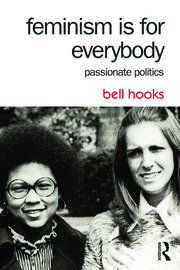
bell hooks published feminism is for everybody: passionate politics in 2001. Short and accessible, this book introduces feminist theory to people of all genders and makes a case for the enduring importance of feminism. hooks explores feminisms’ most important themes and concerns, evaluates the pros and cons of different feminist movements, and dives into contemporary issues. As with her other works, hooks looks at issues such as reproductive rights, sexual violence, race, and class with a critical and compassionate eye. She encourages all of us to fight against patriarchy, racism, and homophobia as feminists.
The Author
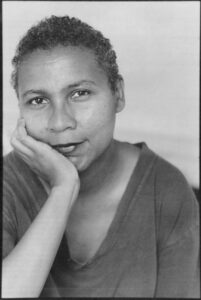
bell hooks was born as Gloria Jean Watkins on September 25, 1952 in Hopkinsville, Kentucky. bell hooks is her pen name; she adopted her maternal great-grandmother’s name and styles it in lowercase letters because she wants readers to focus on her ideas, not her personality. hooks’ was educated in racially segregated public schools, later writing that this is where she experienced education as the practice of freedom. She describes the great adversities she faced when making the transition to an integrated school, where teachers and students were predominantly white. hooks attended Stanford University, where she graduated with a degree in English in 1973. During her time as an undergrad at Stanford, bell hooks wrote ain’t i a woman: black women and feminism. She then got her master’s degree in English from the University of Wisconsin–Madison in 1976, and spent several years teaching and writing. In 1983, she completed her doctorate in literature at the University of California, Santa Cruz, writing her dissertation on author Toni Morrison. bell hooks has published more than 30 books, and has held positions as Professor of African-American Studies, English Literature, and Women’s Studies at Yale University, Oberlin College, and the City College of New York. She currently serves as a Distinguished Professor in Residence in Appalachian Studies at Berea College, in her home state of Kentucky.
“Conservative mass media constantly represented feminist women as man-haters. And when there was an anti-male faction or sentiment in the movement, they highlighted it as a way of discrediting feminism. Embedded in the portrayal of feminists as man-hating was the assumption that all feminists were lesbians. Appealing to homophobia, mass media intensified anti-feminist sentiment among men.”
bell hooks
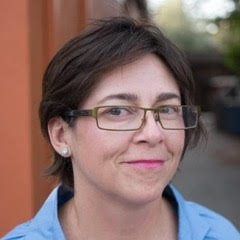
Our Guest: Gina Haney
Gina Haney specializes in economic development and equitable community engagement surrounding cultural heritage. In 2008 she founded Community Consortium and began, with the government of Iraq, an inclusive stakeholder-driven management plan and World Heritage nomination for the site of Babylon. In addition to working in the Middle East, Gina manages projects in South America and Africa. She is currently pursuing graduate studies at Stanford University. Gina lives in the Bay Area with her partner, two daughters, and corgi. She longs to spend a significant portion of her life in New Zealand.
Amy’s Takeaways
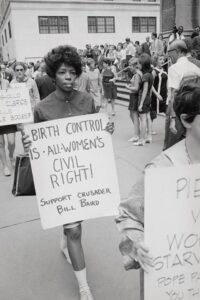
feminism is for everybody was one of the first episodes I recorded…in fact it aired exactly a year after Gina and I recorded it! Listening to it again now, I am amazed at how much I have learned this year, and also how much bell hooks has influenced me, through this book and ain’t i a woman. She remains my hero because she tackles the most difficult aspects of history with courage and honesty, and she reminds me constantly that we are all responsible for what we do with knowledge once we have it. I also find her clear, colloquial language inspiring, knowing that she can shift gears into fancy academese any time she wants to – she chooses to talk like a normal person because her target audience is normal people, i.e., every one of us.
“Utopian visions of sisterhood based solely on the awareness of the reality that all women were in some way victimized by male domination were disrupted by discussions of class and race…we could only become sisters in struggle by confronting the ways women – through sex, class, and race – dominated and exploited other women, and created a political platform that would address these differences.”
bell hooks
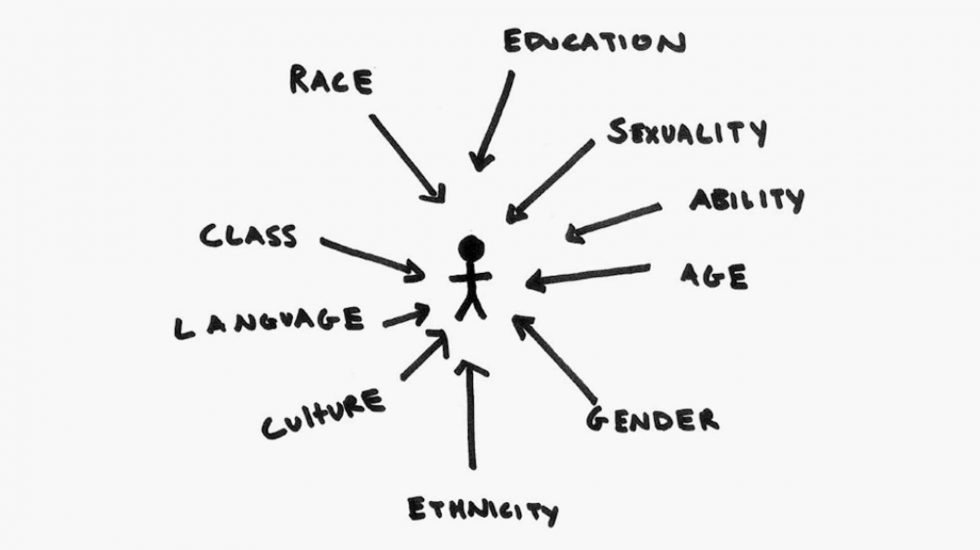
Listen to the Episode
&
Share your Comments with us below!





